Notes on Poem
This poem requires a bit of extra mental leg work and rewards repeated reading. It builds its web of meanings through many allusions to other works. Sometimes that takes the form of entire lines lifted from other sources. At other times a word or phrase will nod to another poem, song, or scene from a movie. The idea here isn’t plagiarism; it is to deepen and thicken the meaning of both works by stacking them on top of one another.
T. S. Eliot did this all the time. The list of allusions for his poem The Waste Land reads like a syllabus for a course on the history of Western literature. He uses the allusions to serve the overall thrust of the poem, that after WWI the project of Western meaning-making has been shattered and shown to be fatally flawed. Something similar is going on in this poem.
If you want to understand some of the things the poem is saying, it will help to trace some of the echoes back to their source. As with all of these psalm poems, the most prominent source of allusions will be the Bible itself, but I’ll point out a few of the others here to get you started.
The door opened and the dancing girls came,
The music and the performers, the bodies
Spun in the tempest, hardly touching.
In Dante’s Inferno, the adulterers inhabit a circle of Hell in which they are caught up in a great storm (representing the passions that ruled them in life). The winds are constantly pulling them apart from one another. They are caught up in the air, colliding but unable to hold one another.
Like Dante, the main character in this poem also enters a kind of Hell. (He even meets a dark guide, like Virgil.) However, instead of being a place where people are punished for their sin, here their vices run rampant. The ghosts run the show and the speaker identifies himself as one of them.
Every face a distant star.
The phrase “distant star” is an allusion to the song Suburban War from Arcade Fire’s album The Suburbs. I think the album is one of the finest critiques of the dislocation and alienation in modern life that the 21st century has yet produced. It fits right alongside both this poem and psalm 53.
If these were the voices
Of my dead friends or
Just the gramophone?
This is from a haiku by George Seferis (and from Stephen King’s Bag of Bones).
He said, “You’re like to go missing
In your sleep.”
Just the slightest nod to another of the poem’s sources, the Sleep No More experience at the McKittrick Hotel in New York City.
The piano played itself in the corner
Can anyone spot this one? (I can’t give you all the answers.) Clue: it is a reference to a TV show that plays into the setting of this poem. Here’s another clue: The House of the Rising Sun.
If you serve the Red Rose of York,
Or the White Rose of Lancaster.
The passage is the same:
Two coins for the ferryman.
Just a little bit of English history (the War of the Roses) and some Greek mythology there (the crossing of the river Styx).
Be patient with all that is unanswered
Inside your soul.
This is from Rainer Maria Rilke’s Letters To A Young Poet. I highly recommend Rilke’s slim volume of letters; it is full of wisdom.
The answer to suffering is not an answer,
But an experience.
As Job learned.
“The end is here, and the son of man is delivered.”
The garden they are in is a kind of Gethsemane. The stranger is Christ.
This is bitter business.
Now cracks a noble heart.
Good night, sweet prince. Good night.”
He said and wiped away an imaginary tear.
The rest is silence.
Fans of Shakespeare might recognize the end of Hamlet here.
Poem—Petty Kingdoms
There is a house in New Orleans
They call the Rising Sun.
It’s been the ruin of many a poor boy
And me, O God, for one.
-The House of the Rising Sun, Traditional Folk Ballad
I.
The door opened and the dancing girls came,
The music and the performers, the bodies
Spun in the tempest, hardly touching.
Ghosts moved in masquerade.
And I am one.
Every room was glass and flashing,
Every face a distant star.
There was acceleration
And flickering and fever.
The falling bodies spun
Like dark dust sifting
And I am one.
The piano played itself in the corner
And everyone danced
But no one was listening.
Someone grabbed my face and kissed me.
I wanted to ask if the end had come,
Was yet to come, or was here among us?
I wanted to ask:
If these were the voices
Of my dead friends or
Just the gramophone?
There was a man next to me at the bar
With a cigarette in his lips
And a pile of burnt ends beneath his chair.
He introduced himself as my guide.
“With such deep games played
In lightless corners, one must be careful,”
He said, “You’re like to go missing
In your sleep.”
He bent close to me to confide,
“The fear isn’t believing nothing,
but in coming to believe such horrible things,”
(At this he gestured around him at the house)
“as though they were nothing.
It is the silent, internal slipping that gets you—
down the crapper with the rest of time.”
He winked as though he had imparted something important.
“It doesn’t matter
If you serve the Red Rose of York,
Or the White Rose of Lancaster.
The passage is the same:
Two coins for the ferryman.”
He lit another cigarette with the last bit of the old one
He stank the way a drunk stinks.
I listened to his words,
But could only hear
A loud noise coming from inside me
Reciting the words that everyone who is lost knows:
I am alone.
I am alone.
I am alone.
I fled.
II.
I stumbled into a garden
And shut the door on the distant music.
A man was there, kneeling.
I asked him, “Do I know you?”
And this is what he said:
“We are on the high wire now. And tumbling.
Every line is bent, trussed, and scattered.
I know how young you are.
I know you have feared all the wrong things.”
He laid his open palm on my chest
And felt the fear flutter there.
I bowed myself beside him.
“I know it seems there are so many reasons to believe,
And so many reasons to throw it all away.
Be patient with all that is unanswered
Inside your soul.
The only thing left is not something you will do;
It is something that will happen to you.
You are caught in something irreversible,
And the only way out is through.
The answer to suffering is not an answer,
But an experience.”
I felt nauseous and I tried to stand.
He glanced at the door.
“The end is here, and the son of man is delivered.”
III.
The entrance to the garden opened
And a loud parade flowed into the silence.
Many voices sang together:
“To live is self,
To die is unthinkable,
So we will take our sin in sips.
We have gathered our petty kingdoms,
But it is your universe, so we will wait
If you stagger to the skull’s place.
Come, shaker, rattle us down.
Christ the ridiculous,
Take your crown.”
One man broke off from the rest
And grasped the kneeling stranger
And kissed him, saying,
“Thou my God,
I would pry open your inner parts
And swallow you down with sauces
As one eats an oyster.”
The stranger pulled away but couldn’t
Break the man’s grip so he cried
And held onto his captor,
Who continued relentlessly:
“The sight of you repulses me.
Where is the knowledge I bargained for?
God, my God. Come,
Let us reason together.
Did you not make eyes
To look around? This mouth
To swallow down?
These reticulated fingers
To take and take and take—
First a little, then a lot, then everything?”
Someone raised their voice over the din and said,
“We have come to the end
of our time together, I am afraid.”
They lifted the stranger and dragged him away.
The speaker continued,
“This is bitter business.
Now cracks a noble heart.
Good night, sweet prince. Good night.”
He said and wiped away an imaginary tear.
The rest is silence.
Psalms: 1, 2, 3, 4, 5, 6, 7, 8, 9, 10, 11, 12, 13, 14, 15, 16, 18, 19, 20, 21, 22, 23, 24, 25, 26, 27, 28, 29, 31, 32, 34, 35, 38, 39, 40, 42, 43, 46, 50, 51, 53, 54, 62, 63, 65, 66, 73, 74, 75, 84, 86, 88, 90, 91, 100, 107, 110, 114, 117, 118, 119, 120, 121, 122, 123, 124, 125, 126, 127, 128, 129, 130, 131, 132, 133, 134, 137, 139, 140, 142, 147, 148.
Request the Darkling Psalter in Print
If you would like to move this project one step closer to publication, sign up on this form to request the Darkling Psalter in print.
Photo by Artem Kryzhanivskyi on Unsplash




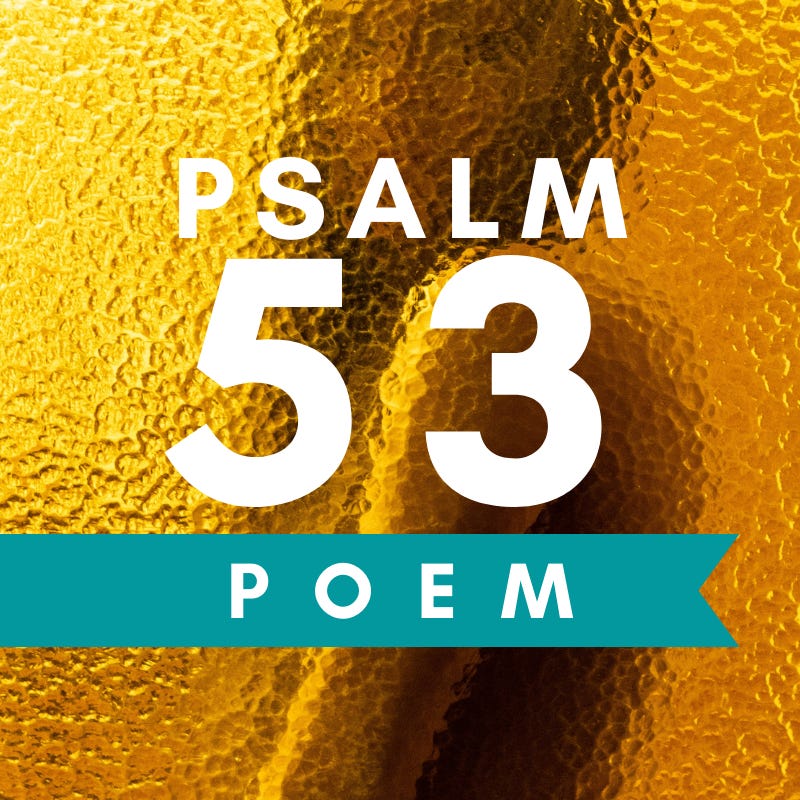


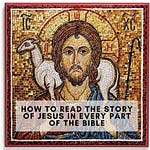
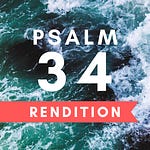
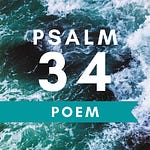



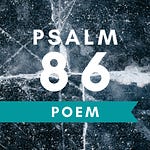
Share this post